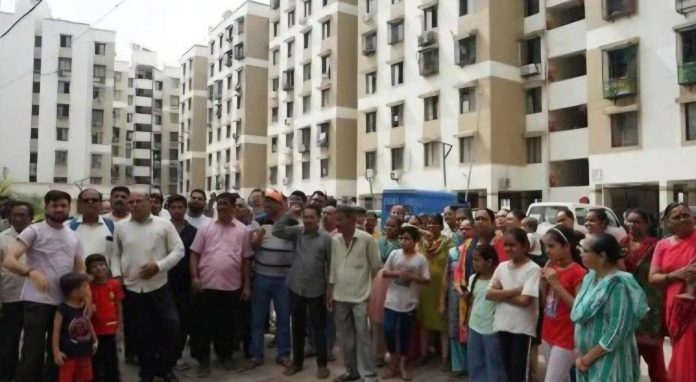Disturbed Areas Act in Gujarat Sparks Controversy Over Alleged Discrimination Against Muslims
Surat, Gujarat – A major controversy has erupted in Surat after authorities sealed an apartment purchased by a Muslim woman, citing the Disturbed Areas Act. The move, triggered by complaints from Hindu residents, has reignited debates over discrimination in property transactions and communal tensions in Gujarat.
The controversy began shortly after the purchase was finalized between the Muslim buyer and a Hindu seller. Local residents raised objections, prompting formal complaints to the Surat district collectorate. In response, officials sealed the flat, despite the buyer having made a token payment. According to Urdu daily Inquilab, this action reflects growing hostility not only toward the Muslim buyer but also toward the Hindu seller in Surat’s Salabatpura locality.
Authorities justified the sealing by invoking Sections 5(a) and 5(b) of the Disturbed Areas Act, which mandates prior approval from the district collector for property transactions in designated “disturbed” areas. Originally intended to prevent communal polarization following violence, the law now faces increasing criticism for disproportionately affecting Muslims.
Muslim property owners often find themselves obstructed from selling their properties due to opposition from Hindu residents or political pressures. The Surat case is a stark example, with complaints framing the sale as a potential threat to communal harmony. Amendments to the Act have further empowered district collectors to halt transactions based on concerns over community clustering and have imposed stricter penalties, including possible imprisonment.
Over the years, several property disputes under this law have reached the Gujarat High Court, which has occasionally ruled in favor of sales despite resistance. For instance, in 2019, a legal battle ensued over the sale of a Vadodara bungalow from a Hindu businesswoman to a Muslim businessman. Neighbors challenged the sale, citing a lack of unanimous consent and raising concerns over disturbances. The case spanned four years before the Gujarat High Court ruled in November 2023 that the transaction was valid, emphasizing that the law was meant to curb distress sales rather than accommodate neighborhood biases.
Despite its original intent to prevent forced property transfers after communal riots, the Disturbed Areas Act has evolved into a regulatory tool that significantly impacts inter-religious transactions. Critics argue that it has entrenched demographic segregation and deepened societal divisions, particularly in BJP-ruled Gujarat, where discrimination against Muslims is becoming increasingly apparent.




